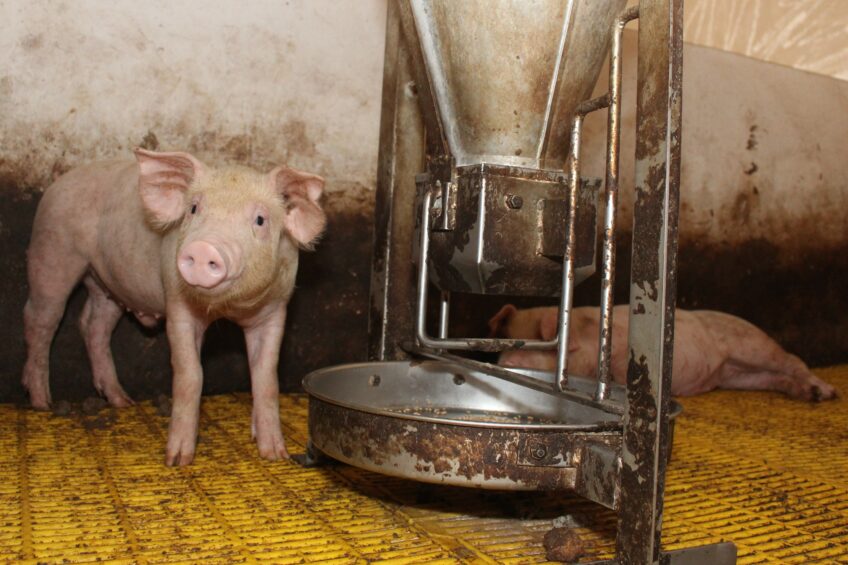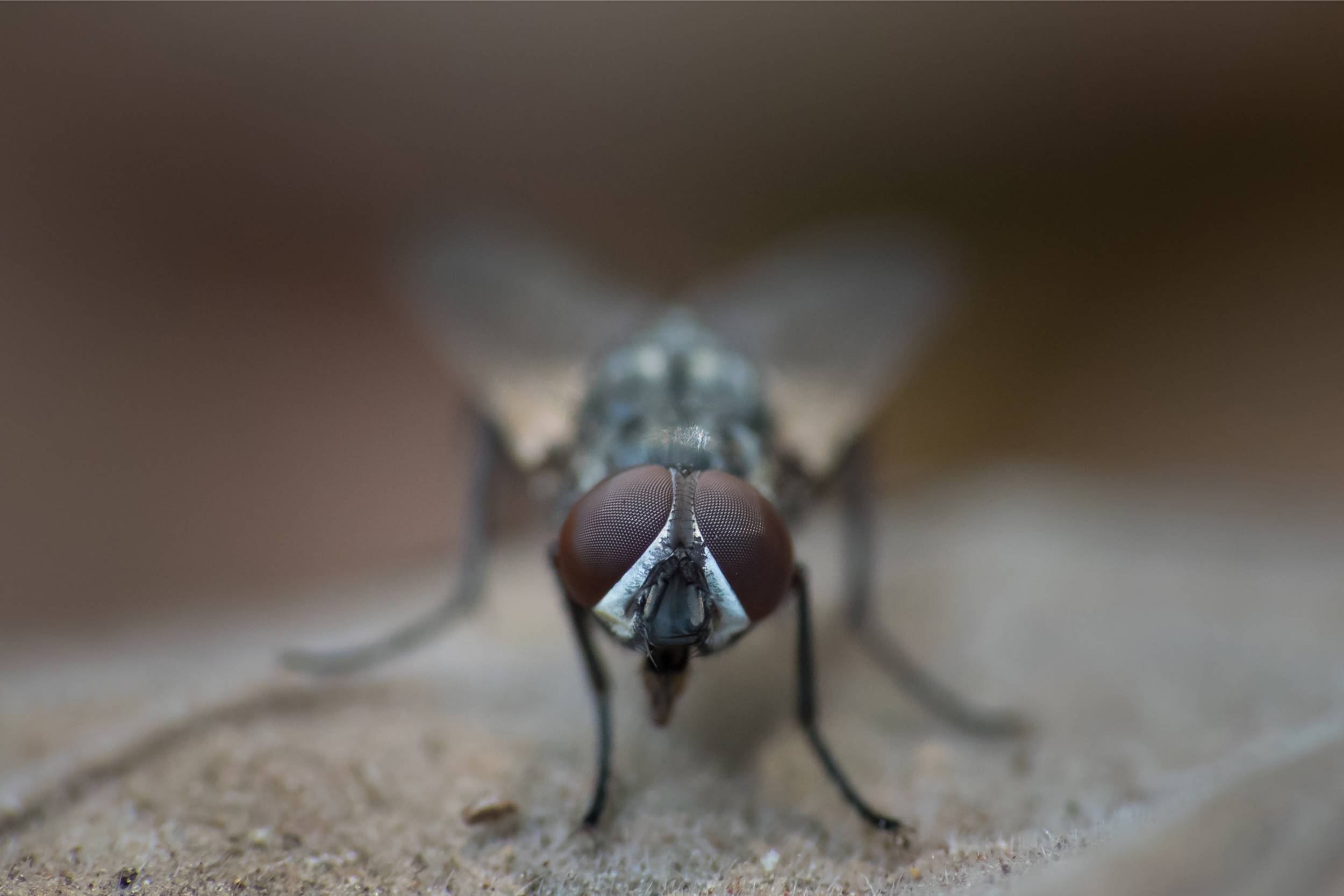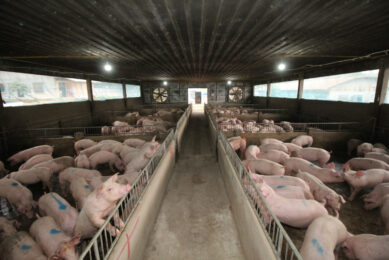Immune booster observed to delay onset of ASF

Feeding a diet including an immune boosting complex has been observed to impact the onset and severity of African Swine Fever (ASF). That became clear from a presentation held at a global veterinary event in Leipzig, Germany.
Associate professor Dr Le Van Phan (pictured) addressed the audience at the International Pig Veterinary Society (IPVS) Congress. This took place in combination with the European Symposium for Porcine Health Management (ESPHM), from 4-7 June, 2024. Dr Le works for the National University of Agriculture in Hanoi.

Various variants of ASF virus
Dr Le pointed out that Vietnam has been suffering from ASF virus for 5 years. Ever since, various variants of genotype II have co-existed in the country, leading to both chronic and acute versions. That, of course, is in combination with other viral and bacterial pathogens that also occur in Vietnam.
The study, with 40 pigs of 6 weeks of age, was done in cooperation with feed additive producer Innovad, headquartered in Belgium. The company intended to test the effect of providing an immune boosting complex (IBC) consisting of a “proprietary mixture” of phytogenics and glycerol monolaureate, as from 14 days prior to infection until the end of the trial.
Trial set-up
The research team worked with 2 pre-challenged groups of 20 pigs each:
- A first group received no immune boosting complex;
- A second group received an immune boosting complex in the diet.
On day 14, the research team took 10 pigs per group to continue the trial and individually infected them with ASFv (orally and nasally). They observed the pigs daily for clinical signs and recorded body temperatures until day 24 post-infection. The scientists took blood samples and looked for biomarkers in all animals.
Effects of the ASFv infection
The team found that the infected pigs in the control group started displaying fever from day 4. By day 15, all animals were feverish. In the experimental group however, there was a much later disease onset (day 20 post-infection).
Similarly, 18 days post-infection, 80% (8 out of 10) of the infected animals in the control group had died. In the group that received the immune boosting complex, this was 11% (1 out of 9 – 1 pig died early, most likely due to stress) at day 18 post-infection.
All pigs in the control group were viraemic by day 15 post-infection. In the experimental group, only 2 out of 9 pigs were viraemic by day 15.
Last but not least, 2 out of 10 pigs were still alive in the control group, whereas 8 out of 9 pigs were still alive at 24 days post-infection.
To our knowledge, this is the first study that showcases an in-feed immune-boosting complex with markedly reduced incidence
Reducing mortality and improving protection
Dr Le concluded that the trial showed that the immune boosting complex reduced mortality and improved protection against the ASFv challenge (both onset and severity). In terms of related mechanisms of actions, he pointed to major inflammatory and oxidative stress responses.
In the proceedings of the congress, the authors wrote: “To our knowledge, this is the first study that showcases an in-feed immune-boosting complex with markedly reduced incidence, late onset of ASFv symptoms and related serological parameters in experimentally challenged ASFv pigs. Further research is necessary to clarify how such IBC could be harnessed as a supportive anti-ASFv aid.”
ASF is “a very difficult disease”
Dr Milena Sevastiyanova is global technical lead for Innovad. She said the trial was carried out in Vietnam because it is a very difficult disease. “The problem is endemic there and the people are looking for a solution. At the same time, challenging trials with ASF are not easily done in a lab in the EU.”
Bottom line of the research, Dr Sevastiyanova confirmed, is to help boost the pigs’ immune status to be able to better face health challenges of any kind. “In fact, this was part of my presentation during the Pig Feed Quality Conference in Vietnam. I mentioned that the pig’s immune system is challenged too much already by PRRS, PCV2, M. hyo, swine influenza, mycotoxins and additional intestinal health pathogens that compromise immunity even more.”
Effect on other pathogens as well
The solution is likely to not only impact the ASF virus alone. Dr Sevastiyanova: “The IBC is not designed especially for ASF. By boosting innate immunity we can expect improvement in other viruses as well (mostly enveloped because direct efficacy of the pure monolaurin) and bacteria.”
As for the mode of action, Dr Sevastiyanova said, “Innate immunity is the first line of defence. At the same time innate immunity of swine is under many challenges and is targeted by many viruses trying to “escape” it. Supporting the innate immunity of the animals enables them to “fight” better and to be more resistant to diseases, both viral and bacterial. At the same time, such support will allow vaccines to better express their efficacy.”
Importance of research is “big”
The importance of the findings are “big,” said Dr Sevastiyanova. “The filed results (not only experimental) show the ASF mortality is significantly decreased. If the IBC concept is applied at regular basis from one side it will help the pigs to resist infection better. From another side (in the Vietnamese situation) with the time at the farm, it will help to significantly decrease the viral circulation to minimal levels. At the same time the role of IBC to support the efficacy of vaccines (PRRS etc.) will be crucial for improving vaccine efficacy and better control of diseases at pig farms.”
Additional tests in the future could be held to follow up this trial, she said. Then also effects could be measured that would go beyond the acute phase, as the trial was now limited to 24 days post-infection.











